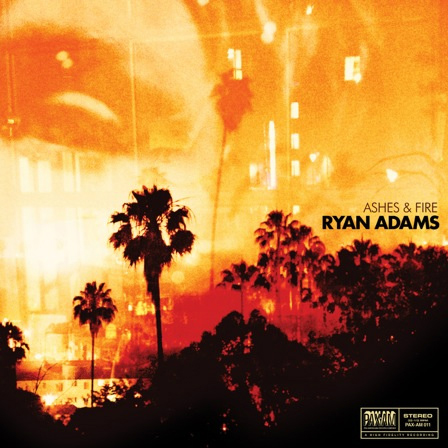The soulful acoustic strumming of opening track “Dirty Rain,” sets the tone for Ryan Adams’ 13th studio album “Ashes & Fire” ““ one that’s a little more tender, a little less gritty and a lot more reflective.
At just under 44 minutes long, the album provides a sense of concise cohesion absent from 2010’s still solid double album “III/IV” (which was actually recorded in 2006). The finished product is indeed short and sweet.
Perhaps it’s a reflection of married bliss with wife Mandy Moore, but “Ashes & Fire” conveys a softer side of Adams, as well as a return to his trademark alternative country rock.
“Ashes & Fire” showcases Adams’ talent for wistful, romantic lyricism with a touch of melancholic twang ““ offering a sound faintly reminiscent of ’70s rock that could fit quite comfortably beside Mom and Dad’s old Eagles records.
“Kindness don’t ask for much but an open mind / Kindness can cure a broken heart / Honey are you feeling kind? / Do you believe in love?” Adams croons in “Kindness.”
In fact, Adams asks a lot of questions over the course of “Ashes & Fire’s” 11 tracks, reminiscing on loves past and meditating on the present.
“Love can mend your heart / But only if you’re lucky now. / I don’t remember, were we wild and young? / All that’s faded into memory / I feel like somebody I don’t know / Are we really who we used to be? / Am I really who I was?” Adams implores in “Lucky Now.” It may sound like reflections on an identity crisis, but Adams delivers the contemplative confusion beautifully.
Fluid harmonies knit their way throughout the album, revealing mature songwriting only further enhanced by guest keyboardist Benmont Tench (of Tom Petty and the Heartbreakers) and a few sweetly sung backing vocals from Norah Jones. Together, the delicate configuration projects a sound that’s effortlessly honest.
“Do I try and stay still for you? / And the clouds will part here / An emptiness of the room / Do you watch me from the corner of your eye? / Do we say goodbye?” Adams asks on album stand-out “Do I Wait.”
Adams’ lyrics are emotionally relatable and for that, all the more believable ““ ranging from the imperfection of a relationship gone awry, to the introspection following its conclusion. But even at its most bittersweet, “Ashes & Rain” is gentle on the ears, with tracks that are skillfully arranged with smooth transitions fastening together Adams’ most lively and subtle acoustic tunes.
“Dirty Rain,” “Do I Wait,” “Chains Of Love,” and “Lucky Now” are memorable tracks, though the album itself is built out of a collection of lyrical gems also perfectly suited for freeway driving.
“I Love You But I Don’t Know What to Say” concludes the album on just the right note with a narrated love letter of sorts ““ “I’ll love you all the rest of my days / When the night is silent and we seem so far away / Oh I love you, but I don’t know what to say.”
“Ashes & Fire” is built on contrasts ““ repeated motifs of darkness and light, love and loss, but even more evidently a rebirth rooted in experience. Adams illustrates the retrospection allowed by maturity, proving that honesty is infallibly the best policy.
